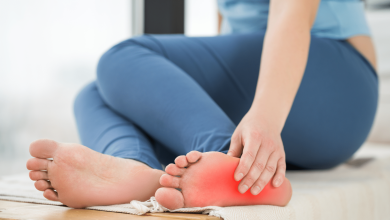ESSENTIAL TOOLKIT TO BOOST YOUR EMOTIONAL WELLBEING

A wellness toolkit is a collection of objects, routines, and activities that can help you enhance your health and mood. Prepare these must-haves for your wellness toolkit if you want to feel your best. Wellness is a lifelong pursuit, and having the appropriate tools may help you feel happy, healthy, and powerful along the way.
Teas made from herbs:
When it comes to your health, a cup of tea can do wonders. You may utilize tea as a natural remedy once you know which teas to drink. Make a cup of green or black tea for an energy boost. To relax your nerves, drink lavender tea. When you’re feeling down, lemongrass tea can assist. Alternatively, chamomile can be used to treat insomnia and help you unwind at the end of the day.
That Friend Who Always Comes Through:
A friend is never more than a phone call away. When you’re feeling overwhelmed, talking to someone can help you gain perspective. According to Psychology Today, keeping suffering within makes things worse. As a result, make it a practice to have a go-to friend to lean on. Instead of keeping problems bottled up, sharing your thoughts with someone you trust can help you work through them.
Exercise:
One of the most effective strategies to improve your mental health is to exercise. When you exercise, your body releases endorphins, which are feel-good brain chemicals. Serotonin, dopamine, and norepinephrine are neurotransmitters that reduce stress, relieve pain, and improve mood. When people say they’re on a “runner’s high,” they’re referring to this.
Regular exercise can help with anxiety, sadness, ADHD, and other mental health issues. It also improves memory and sleeping time.
According to current guidelines, the average adult should exercise for 75 to 150 minutes per week. Any action that raises your heart rate and leads you to breathe faster qualifies. A brisk walk, a game of tennis, a swim, or a bike ride — whatever piques your interest!
Social connections and strength:
Social ties may be beneficial to one’s health and lifespan. Scientists are discovering that our social ties have significant emotional and physical consequences on our health. Social relationships influence our biology and well-being, whether they are with romantic partners, family, friends, neighbors, or others.
Take into consideration your metabolic rate:
As you grow older, your metabolism shifts. You consume fewer calories and digest food differently. Lean muscle is also lost. The pounds can pile up if you don’t exercise and modify your diet. Middle-age spread can turn into middle-age sprawl quite fast. You may be damaging your health by carrying those excess pounds.
Create good habits:
We all know that making healthy choices can improve our health and help us live longer. Maybe you’ve previously tried to eat healthier, exercise more, get more sleep, quit smoking, or reduce stress. It isn’t straightforward. However, studies suggest that you may improve your ability to develop and maintain a healthy lifestyle.
Donate to others:
According to research, acts of kindness and generosity can help you enhance your mental health by:
providing happy sentiments and a sense of accomplishment giving you a sense of purpose and self-worth assisting you in making connections with others
It could be as simple as showing kindness to others or as complex as volunteering in your community.
The following are some examples of things you could try:
expressing gratitude to someone for something they have done for you asking friends, family, or coworkers how they are and truly listening to their response spending time with friends or relatives who require support or company offering to assist someone you know with DIY or a work project volunteering in your community, such as assisting at local food, bank, school.
Pay attention to what’s going on right now: (mindfulness)
It is possible to improve your mental health by paying greater attention to the present moment. This encompasses your thoughts and feelings, as well as your body and the environment.
This awareness is referred to as “mindfulness” by some. Mindfulness can help you enjoy life more and have a greater understanding of yourself. It has the potential to improve your outlook on life and how you tackle situations.
Meditation:
Meditation can be useful physically, intellectually, and emotionally since it allows you to calm your breath, quiet your thoughts, and find serenity. Meditation is increasingly widely utilized to treat mental illnesses, addiction, and everyday stress, as well as to heal physical ailments and improve sleep.
Meditation is a simple approach that can help you control stress, reduce anxiety, enhance cardiovascular health, and increase your capacity for relaxation if done for as little as 10 minutes each day.
Meditation is a proven approach to lower anxiety and tension while also improving general well-being if you want to conquer anxiety without drugs.
Nutrition:
Recent research reveals that healthy nutrition is important for mental health and that dietary factors can influence a variety of mental health issues.
The importance of diet in the formation of key trends in mental health is one of the most obvious, yet under-recognized, variables. The body of information that links nutrition to mental health is rapidly rising.
Food may play a role in the development, management, and prevention of certain mental health conditions such as depression, schizophrenia, attention deficit hyperactivity disorder, and Alzheimer’s disease, in addition to its impact on short and long-term mental health. (Image courtesy of the Mental Health Organization.)
Some dietary advice
It’s crucial to get your five a day. Almost every fruit is edible.
Whenever feasible, prepare food from scratch. Whole foods are healthier for you than processed foods, which are high in sugar and bad fats. BBC Good Food is a fantastic resource for healthy recipes.
It is critical to eat healthy during work. If you consume something high in sugar at lunch, you’re likely to have a glucose slump in the afternoon, which reduces your focus and attention and makes you feel sluggish.




